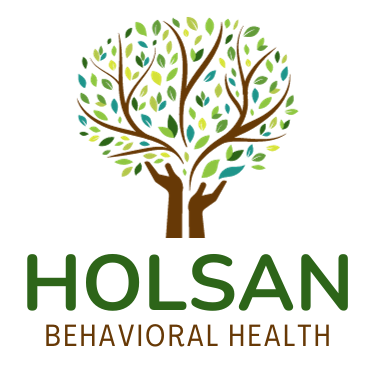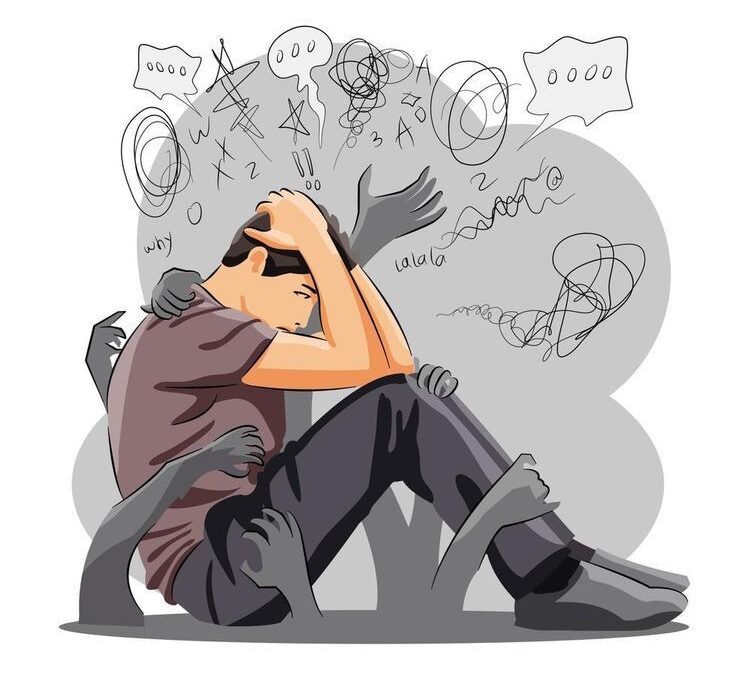What Are Psychotic Disorders?
Psychotic disorders are severe mental health conditions that affect a person’s ability to think clearly, process reality, and interact with the world around them. Individuals with psychotic disorders may experience delusions, hallucinations, disorganized thinking, and difficulties in daily functioning. These disorders can be distressing for both the individual and their loved ones, but effective treatments are available to help manage symptoms and improve quality of life.
At Holsan Behavioral Health, we understand the challenges faced by those living with psychotic disorders. By raising awareness and providing specialized care, we help individuals regain stability and lead fulfilling lives.
Common Symptoms of Psychotic Disorders
The symptoms of psychotic disorders can vary depending on the specific condition, but some of the most common include:
✅ Hallucinations – Seeing, hearing, or feeling things that are not there. ✅ Delusions – Strong false beliefs that are resistant to reason or contrary to reality. ✅ Disorganized Thinking – Difficulty organizing thoughts, speaking incoherently, or frequently losing a train of thought. ✅ Lack of Motivation – Struggling to complete daily tasks or losing interest in previously enjoyed activities. ✅ Social Withdrawal – Avoiding interactions with friends, family, or the community.
Conditions such as schizophrenia, schizoaffective disorder, and brief psychotic disorder fall under the category of psychotic disorders.
The Importance of Early Diagnosis
Early detection and intervention play a crucial role in improving outcomes for individuals with psychotic disorders. Recognizing the signs and seeking professional help as soon as possible can lead to a more effective treatment plan and reduce the risk of long-term complications. If left untreated, psychotic disorders can severely impact relationships, work, and overall well-being.
At Holsan Behavioral Health, we emphasize early screening and assessment to ensure timely support for individuals experiencing symptoms of psychosis.
Treatment Approaches for Psychotic Disorders
A comprehensive treatment plan for psychotic disorders often includes a combination of the following approaches:
💊 Antipsychotic Medications – These medications help regulate neurotransmitters in the brain to reduce symptoms such as hallucinations and delusions. Commonly prescribed medications include first-generation and second-generation antipsychotics.
🧠 Psychotherapy – Cognitive Behavioral Therapy (CBT) and other evidence-based therapies help individuals understand their symptoms, develop coping strategies, and manage stress effectively.
👩⚕️ Supportive Therapy & Case Management – Ensuring that individuals have access to social services, housing support, and vocational training can enhance long-term stability.
🏠 Family Education & Support – Educating family members about psychotic disorders can improve communication, reduce stigma, and create a supportive home environment.How Holsan Behavioral Health Supports Individuals with Psychotic Disorders
At Holsan Behavioral Health, we are dedicated to providing personalized and compassionate care for individuals experiencing psychotic disorders. Our multidisciplinary team offers comprehensive treatment options, including psychiatric evaluations, medication management, and therapy tailored to each patient’s unique needs.
We believe that recovery is possible, and with the right support, individuals can regain control over their lives and achieve personal growth. If you or a loved one is struggling with symptoms of a psychotic disorder, seeking help is the first step toward healing.
In addition to our clinical treatments, we offer community-based programs that provide continuous support to individuals and their families. These programs focus on education, rehabilitation, and holistic approaches to mental wellness. By integrating medical, psychological, and social interventions, we help patients build resilience and lead fulfilling lives beyond their diagnosis.
Final Thoughts
Psychotic disorders can be overwhelming, but they do not define a person’s future. With early diagnosis, proper treatment, and ongoing support, individuals can manage their symptoms and lead meaningful lives. If you are looking for expert care and compassionate support, Holsan Behavioral Health is here to help.
If you or someone you know is experiencing symptoms of a psychotic disorder, don’t hesitate to reach out for professional guidance.
We also recommend: https://holsanbh.com/mental-health/sleep-and-mental-health-holsan/
References:
Mueser, K. T., & Jeste, D. V. (2008). Clinical Handbook of Schizophrenia.
National Institute of Mental Health. (2022). Psychotic Disorders Overview. Retrieved from https://www.nimh.nih.gov
American Psychiatric Association. (2013). Diagnostic and Statistical Manual of Mental Disorders (DSM-5).

